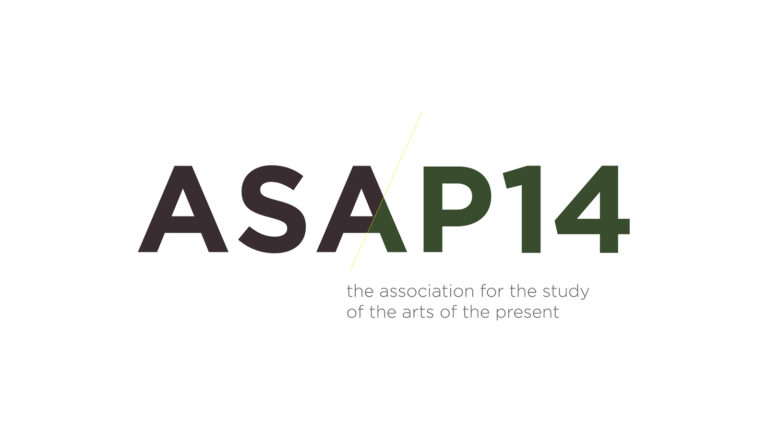ASAP/14 will have in-person programming, as well as virtual streams, at University of Washington’s Seattle and Bothell campuses in order to maximize accessibility and explore how and why we gather together.
ASAP/14: Arts of Fugitivity
ASAP/14 will have in-person programming, as well as virtual streams, at University of Washington’s Seattle and Bothell campuses in order to maximize accessibility and explore how and why we gather together. We are especially pleased to be able to partner with the Henry, a museum for contemporary art and ideas on the UW campus, and Wa Na Wari for events. Please read the ASAP/14 conference program here.
The conference theme—Arts of Fugitivity—addresses strategies of survival and imagination. We encourage the exploration of fugitivity as a concept, practice, and method in contemporary art and culture — what does it mean to hide within plain sight, to create alternative ways of being, seeing, and doing, to escape? More than just longing for something else, arts of fugitivity show us how to get there and suggest that we might, in fact, already be there. Fugitivity is a keyword in Indigenous studies, where it asks us to think critically about the politics of movement and place and their intersections with settler-colonialism. As Jarrett Martineau and Eric Ritskes write, “Fugitivity finds its energetic potency in remaining illegible to power, incommensurable with colonialism, and opaque to appropriation, commodification and cultural theft. That which is fugitive proposes an insurgent force of dissident visibility; it is the hidden that reveals itself in motion.” We are curious about how fugitivity emerges as lines of flight, creative camouflage, and aesthetics. Since we are meeting in the Pacific Northwest–specifically the land which touches the shared waters of all tribes and bands within the Duwamish, Puyallup, Skykomish, Snohomish, Suquamish, Tulalip and Muckleshoot nations–how might fugitivity complicate our understanding of mobility and the global, how might it inform our ideas of travel and home, and how might it shift our practices of engagement? As Fred Moten writes “Fugitivity is immanent to the thing but is manifest transversally.” What emerges when we look elsewhere, sideways, and askance for ways to survive? What happens to representation, creativity, and possibility? How do arts as object, epistemology, and method – across visual arts, music, theatre, performance, film, literary, media, and multidisciplinary arts – animate fugitive ways of being, knowing, and imagining?
We invite proposals from scholars, artists, writers, curators, activists and other practitioners whose work addresses and expands upon the study, collection, exhibition, teaching, and writing of art and culture. We invite proposals with alternative, experimental writing practices and modes of presentation, including workshops that break form with the typical conference paper, panel, or roundtable, as well as with the constraints and possibilities of the conference’s hybrid format. We wish to explore fugitivity as strategy, method, mode of being–all of which we see to be grounded in practice. Panels and papers that consider a range of disciplines and methods, and that speak across geographies, (non)traditional institutional or intellectual divides are especially encouraged. Given the conference’s theme, we welcome submissions that rethink and revisit the stakes, limits, pleasures, and discomfort of representation, movement, and evasion.
Panels and papers are encouraged to engage our theme, but participants are welcome to submit other proposals which contribute to our broader project of exploring the arts of the present. Participants may address the following topics, but are welcome to explore others as well:
- Movement, mobility, and complications of home and the global
- Pace, syncopation, and questions of access
- camouflage
- Technologies of evasion, escape, or cover
- The minor, the fleeting, the ephemeral
- Escapism, daydreaming, and wandering
- The undisciplined, unschooled, and unruly
- Crossing Borders, Evading Boundaries, (Re)Making Spaces
- Pedagogies of Inwardness, practices of illegibility
